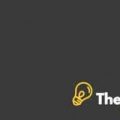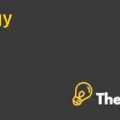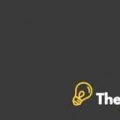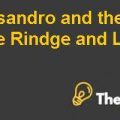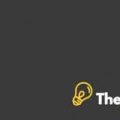
Deutche Telecom: A transformation Journey case A & B Case Solution
Introduction
Deutche Telekom is one of the leading telephone service provider companies in Germany. The company started its operations in 1998, when the broad castings market was tight. Moreover, its German federal post office is located in Deutsche Bundespost, which is considered a state owned monopoly that provides its customers with postal services and saving bank, and telecommunication services. On the other hand, Deutsche Telekom was the first company in Germany that sold its shares in the market. However, by 2005 government authorities had approximately 32% stake on hand and 15% of the deposit was owned by the government development banks.
Deutsche Telekom has four business division centers which include, mobile (T-Mobile), information communication technology services, (T-Systems), telephony services (T-Com) and Internet service provision. Moreover, the company has maintained it strong position in the technology market, which place it’s differentiate position in the communication market as well as help the company in improving its sustainable position in the market. On the other hand, these districts help the company through ensuing competition against one another. Most of the researchers state that growing long standing-competition among the companies, slows down the aptitude of the company in rolling out their unified services in the market.
The headquarter of DT is located in Bonn, which is considered as more or less like a financial holding company which has direct control on its divisional strategies. Moreover, the company merely emphasizes on its three strategic business areas which include (T-Home), (T-Mobile) and (T-System).
T-Home focuses on consumer oriented activities, which include T-online and T-Com and broadband services which targeted those customers who assess the broadband services from home. Moreover, T-Mobile business provides its customers all time-to-time services, which include data offers, and voice services. On the other hand, T-Systems provide all types of mobile and broadband services for business customers.
This case is based on transformation, which is led by Rene Obermann who specialized in transformation processes. This case is divided into two parts, which cover the era between 2006 and 2010. The operation of transformation started in the year of 2006, in which Obermann was promoted to replace Kai-Uwe Ricke at Deutsche Telekom; which is considered as one of the ordinary transporters of the German economy. When Obermann became the chief executive of the company, the faced bad monopoly conditions that negatively affected the operations of the company and the share price of the company collapsed in just few years as he has its grip on home market. As compared to its European competitors, DT labor cost and sales are twice as much higher, which heavily siloed and bloated the market position of the company. Under the leadership of Obermann, the company adopted a dramatic transformation as well as gained dominant market share in the telecommunication market within three years.
Case A describes the overall challenges that the company faced under the supervision of Rene Obermann in order to maintain its competitive position in the market. This case further provides guidance to the new CEO about key factors that the company would use in order to maintain its successful position in the market as well as help them in stabilizing its competitive edge over competitors.
In Case B the company discusses the second phase of DT’s recovery and continued drive through which they maintain their organization as a single integrated company, which would help the company in reducing resistance as well as reassure new comportments. On the other hand, these cases covers key themes of the company through which it would improve the culture, processes, and psychological challenges of leadership that the company needs in building success in the organization. The key themes include (1) Pros and cons of organizational culture (2) transformation process and challenges for maintaining a sustainable position in the market. (3) Psychological challenges, these three challenges help the company in maintaining its competitive position in the market as well as help them in maintaining its steady business growth in the market..................
This is just a sample partial case solution. Please place the order on the website to order your own originally done case solution.

